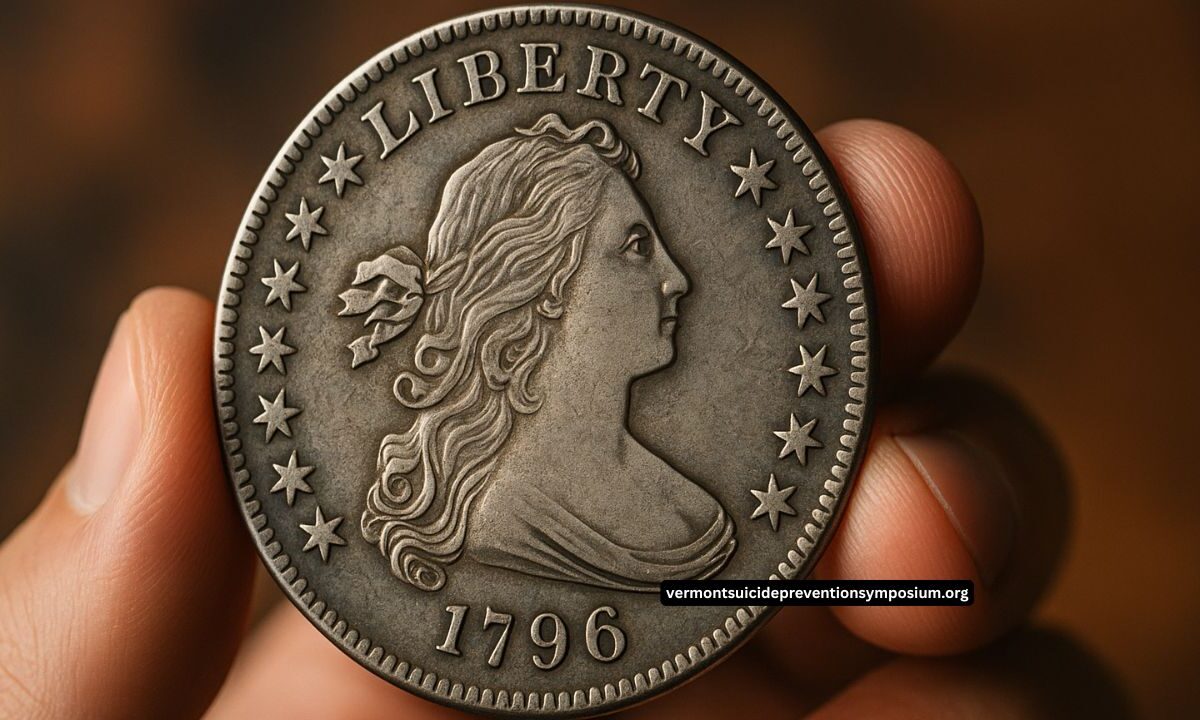While gold continues to be a timeless investment, rare U.S. quarters have recently been fetching prices far beyond their face value—and even outshining gold bars in auctions.
These overlooked pieces of pocket change can be worth hundreds of thousands or even millions of dollars, depending on their rarity, minting errors, and historical significance.
Let’s uncover the 8 quarters currently valued more than gold, and why collectors are paying top dollar.
Why Are Some Quarters Worth Millions?
Several key factors elevate the value of certain quarters:
- Mintage year and location
- Minting errors or anomalies
- Historical background
- Condition or grade (MS-65 and above)
- Collector demand and rarity
Gold currently trades at around $2,300 per ounce. However, some quarters have sold for more than $1 million, making them more valuable per ounce than gold itself.
8 Quarters Worth More Than Gold Bars
| Quarter Name | Year | Estimated Value | Key Feature |
|---|---|---|---|
| 1796 Draped Bust Quarter | 1796 | $1.2 million | First quarter ever minted |
| 1823/2 Capped Bust Overdate | 1823 | $500,000+ | Extremely rare overdate |
| 1870-CC Liberty Seated Quarter | 1870 | $600,000+ | Carson City mint, very low mintage |
| 1916 Standing Liberty Quarter | 1916 | $100,000–$250,000 | Low mintage, first of its kind |
| 1932-D Washington Quarter | 1932 | $30,000–$85,000 | Rare Denver mint variety |
| 1932-S Washington Quarter | 1932 | $25,000–$80,000 | Rare San Francisco mint |
| 2004 Wisconsin Extra Leaf High & Low | 2004 | $5,000–$15,000 | Minting error: extra leaf on corn |
| 1970-S Washington Quarter (Proof, DDR) | 1970 | $35,000+ | Double die reverse error |
Deep Dive into the Top Million-Dollar Quarters
1796 Draped Bust Quarter
The very first U.S. quarter ever minted, it features a small eagle reverse and had a mintage of only 6,146 coins. In pristine condition, this coin has surpassed $1.2 million at auction.
1823/2 Capped Bust Overdate
Only a few specimens are known to exist, making it one of the rarest quarters ever. The overdate feature (3 struck over a 2) adds to its collector appeal.
1870-CC Liberty Seated Quarter
This Carson City-minted quarter had a mintage of just 8,340. High-grade examples are rare and heavily sought-after, with prices well above $600,000.
Modern Errors Also Hold Huge Value
Even modern quarters, particularly those with minting errors, can fetch enormous prices.
2004 Wisconsin Extra Leaf Quarter
These quarters were part of the 50 State Quarters Program, but some versions were struck with an extra leaf on the corn husk. Both the High Leaf and Low Leaf versions have sold for up to $15,000.
1970-S Proof Washington Quarter (Double Die)
Minted over a 1941 Canadian quarter, this coin features doubling on the reverse. Its value is enhanced by the proof quality and error rarity, often auctioning for over $35,000.
How to Know If You Own One
Check for:
- Mint marks like “CC,” “D,” “S,” or “S Proof”
- Unusual or doubled text/images
- Uncirculated or proof-like shine
- Historical years like 1796, 1823, 1870, and 1932
Consider getting it graded by professional services such as PCGS or NGC, which can significantly boost the coin’s value based on its authenticity and condition.
As surprising as it sounds, some quarters are more valuable than gold bars due to rarity, condition, and historical context.
Whether you’re a seasoned collector or simply curious about your spare change, these 8 quarters prove that millions could be hiding in plain sight.
Always examine your change and, when in doubt, seek a professional appraisal—it just might make you rich.
FAQs
Why are old quarters worth more than gold?
Because of their historical significance, low mintage, and collector demand, some rare quarters fetch prices higher than gold per ounce.
Where can I sell a valuable quarter?
Reputable coin dealers, certified auctions, and coin grading services like PCGS or NGC are recommended for high-value coin sales.
Are error quarters from recent years valuable?
Yes. Quarters like the 2004 Wisconsin Extra Leaf or 1970-S Proof DDR have sold for thousands due to minting anomalies.

